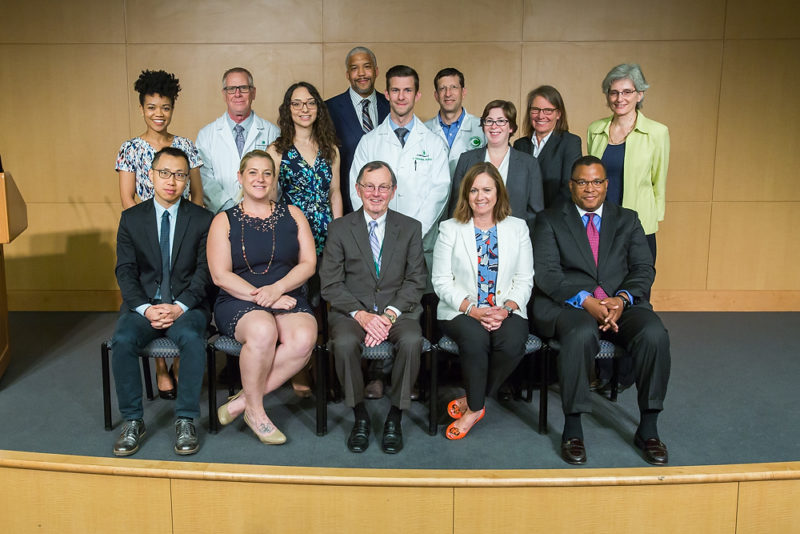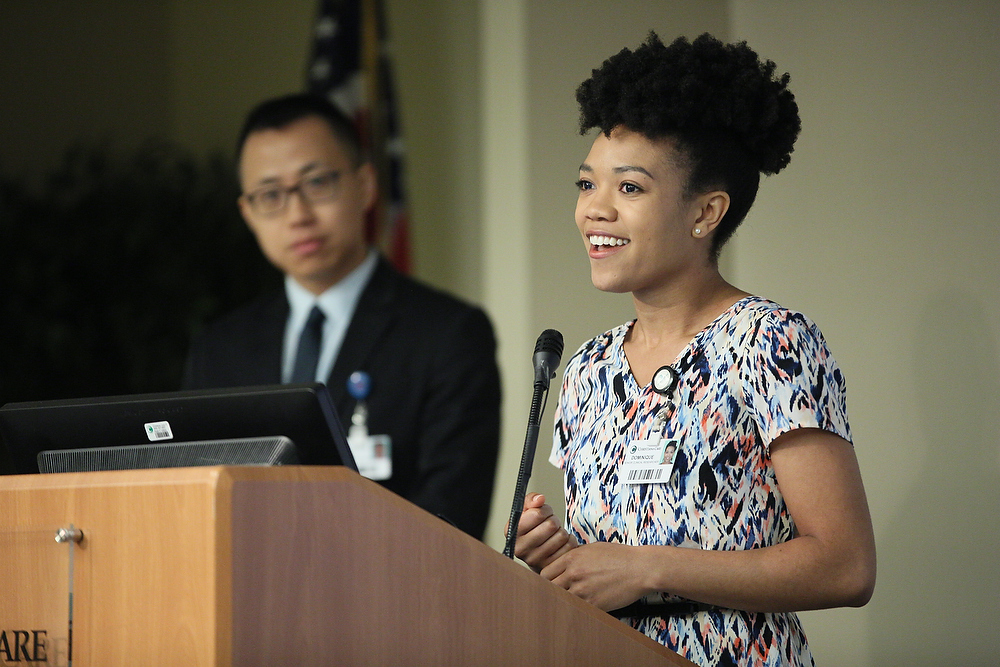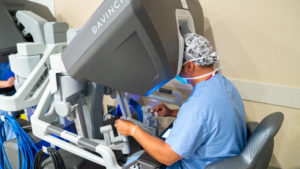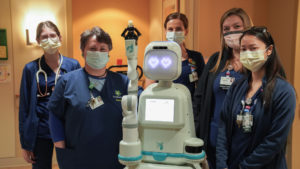In a transformative era when reimbursement models are rewarding quality improvements in medicine, Christiana Care is well-positioned to bring evaluative science to clinical practice because of the research of the Value Institute.
“If we are going to be successful in achieving optimal health for our patients and exceptional patient experience, as well as maintaining organizational vitality, we need the Value Institute,” said Janice E. Nevin, M.D., MPH, president and CEO. “They are a critical partner in all that we do.”
Dr. Nevin praised the Value Institute’s focus on achieving excellence in patient-centered care at the Value Institute’s Spring Symposium, June 10 at the John H. Ammon Medical Education Center. More than 200 participants gathered to celebrate the growth and success of the Value Institute, celebrating its fifth anniversary this year.

Participants learned about representative research to improve clinical outcomes for patients and the creation of a collaborative clinical/research culture devoted to health care delivery science applied across Christiana Care service lines.
The Value Institute has earned prestigious awards from funders such as: The Center for Translational Research; The National Science Foundation; The Center for Medicare and Medicaid Services; and The Patient Centered Outcomes Research Institute.
“This is a form of external validation, showing that our work is significant and is being shared on a national platform,” said Eric V. Jackson Jr., M.D., MBA, director, Center for Health Care Delivery Science, and associate director of the Value Institute.
Symposium participants also heard about the many presentations at national and international medical meetings and numerous publications by members of the Value Institute team.
For Dr. Nevin, the Value Institute is intimately connected to the hospital mission statement, as expressed in the Christiana Care Way, helping to provide innovative, effective, affordable systems of care valued by patients.
For example, a recent Value Institute study shows that a program to embed hospitalists in the trauma service, begun in January 2013, is reducing patient mortality and 30-day trauma-related hospital readmissions for patients with multiple co-morbidities. Mark D. Cipolle, M.D., Ph.D., FACS, FCCM, medical director, Trauma Program, said the research is showing that hospitalists offer a great deal of value when embedded in a trauma program. The research is also earning Christiana Care national recognition, as it is one of the first hospitals to take this approach.
Dr. Jackson said programs highlighted during the symposium were a snapshot of how the Value Institute is moving forward, stressing that the Triple Aim is a guiding principle – working on projects to promote exceptional patient experience, improve population health and reduce the cost of care.
“We are working closely with clinicians to help define best practices and what is valuable to our patients,” Dr. Jackson said.
Another example: A “big data” initiative to create a system that will predict sepsis will help to overcome barriers to timely diagnosis by integrating electronic health records and clinical expertise to provide an evidence-based framework. “Sepsis is the leading cause of death in hospitals and something we want to better understand,” said Dr. Jackson.
And through the creation of a Chronic Kidney Disease Registry, multiple data sources are being used to create a longitudinal description of kidney care in Delaware, and develop models and methods for predicting hospital admission.
“Ultimately, one of our goals is to reduce hospitalization rates of patients and predict the rate of hospitalization within a defined time frame from an office visit,” said principal investigator Claudine Jurkovitz, M.D., MPH, Value Institute senior physician scientist.
Timothy J. Gardner, M.D., executive director of the Value Institute and medical director of the Center for Heart & Vascular Health, said Christiana Care’s “busy, hard-working clinicians need this kind of research support and collaboration to improve their daily practice.”
Dr. Gardner also shared a new organizational model he called “Value Institute 2.0.” Initially in 2011, the Value Institute was organized around four pillars: the Center for Quality and Patient Safety, the Center for Outcomes Research, the Center for Operational Excellence and the Center for Health Care Delivery Science, a team focused on applying scientific approaches to create and analyze system-based processes. To create a more collaborative and interactive environment, the new model is one of overlapping centers, with the Center for Health Care Delivery Science at the heart of research activities. Connecting around this central purpose are funded research, quality and safety, and clinical health services research.
The guiding ethos of the new model is in support of Christiana Care’s service line structure. “We have strong collaborations and evidence that we are an integral part of daily life at Christiana Care,” Dr. Jackson said.



